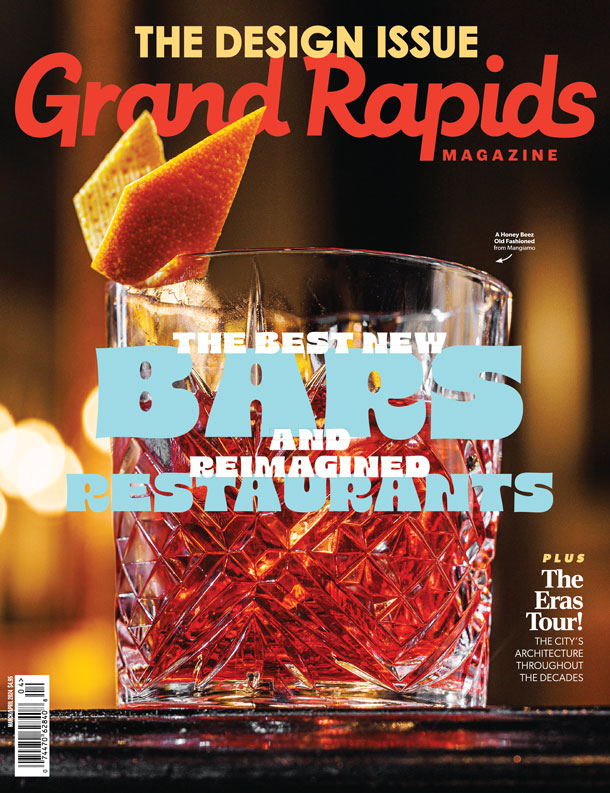After 10 years of its mission to help end systemic racism within the West Michigan area, Partners for a Racism-Free Community (PRFC) officially shut its doors on July 3 and left its remaining intellectual property assets to the West Michigan Center for Arts + Technology (WMCAT).
Throughout the past decade, PRFC partnered with over 40 organizations in the Greater Grand Rapids area that challenged participants to identify ways in which positive actions toward a racism-free environment could be implemented. Some of its key measurements focused on leadership engagement; internal policies, practices and processes; external collaborations and relationships; contractor, supplier and vendor practices; and client, congregation and marketplace practices.
“This passing of the baton is only one glimpse in time of the larger picture of the work toward becoming a racism-free community,” Sharon LaChappelle, PRFC’s former project director, said. “Systemic racism is insidious and requires a heightened understanding to recognize and address all its ever-changing and yet constant structure.”

As a former board member of PRFC, Daniel Williams, WMCAT’s president and CEO, was a perfect fit to take over this effort, according to LaChappelle. “WMCAT is the right place for this work to evolve. As a whole, WMCAT has racial equity and racial justice woven into its DNA, and Daniel already has the depth of knowledge and commitment for this work to thrive,” she said.
To celebrate PRFC’s legacy, Williams plans to integrate PRFC’s Organizational Assessment Tool — also known as the Institutional Challenge to Achieve Racial Equity (ICARE) — with WMCAT’s Public Agency, which was founded in 2015 and embedded inside the nonprofit as an equity-centered design consultancy and social enterprise.
“Adding the PRFC’s ICARE assessment with our established framework will help us move forward toward addressing and supporting what are the next actionable steps to take,” Williams said. “We see this as a way to not only benefit the work we do at WMCAT, but also help other organizations understand the landscape that we’re living in. At the root of that is understanding how structural barriers, organizations and polices can either positively or negatively impact individuals’ ability to ultimately be successful.”
When looking at the social and economic determinants of which populations in the community are most impacted, Williams said there are not only barriers to access that impact an individual’s chance at success, but also an ingrained barrier that comes when institutions and employers partake in decision-making.
“Within our community, there are policies and procedures that are either inadvertently or intentionally impacting certain groups,” Williams said. “When a white high school graduate earns the same amount as a black college graduate in the United States of America, there’s something structural there that needs to be addressed. The racial uprising that’s been happening both in our community and across the nation didn’t create any new issue — it has only shined a light and magnified what’s already been there the whole time.”
“If we’re going to continue to grow and be a vibrant, relevant community, we need to ensure that we’re including all voices in that growth because innovation without equity ignores the realities of daily life and undermines the legitimacy of innovation.”
Daniel Williams
To address these problematic areas, Williams said data is needed to fully identify and understand how this systemic racism has been grounded deep within these institutions. By looking at key metrics, such as home and business ownership, educational and health outcomes, and the racial wealth gap, it allows Williams to step back and take in this information holistically from a balcony view — which, in turn, grants him the opportunity to problem solve through innovative methods.
“When you’re in it, it’s difficult to see the larger issues or the gradual evolutions,” Williams said. “That’s why it’s so important to take a step back and look where we’ve been and where we’re going. If we’re going to continue to grow and be a vibrant, relevant community, we need to ensure that we’re including all voices in that growth because innovation without equity ignores the realities of daily life and undermines the legitimacy of innovation.”
While organizations interested in learning about the ICARE assessment can contact Public Agency at WMCAT, there also are other ways the entire community can help drive this innovative growth, such as engaging in adult and teen programming that focuses on diversifying fields such as the IT sector, and supporting young people transitioning into a secondary option after high school.
Before PRFC’s cessation, LaChappelle spent the past year archiving thousands of ocuments from PRFC’s records to preserve its history and work throughout the community. With racial justice and equity work archives dating back to 1997, these extensive documents can be found at the Grand Rapids Public Library, complied together as the “Racial Justice/PRFC Oral History Project.”
Whether you participate in one of WMCAT’s programs or comb through the “Racial Justice/PRFC Oral History Project,” LaChappelle said the mission of social justice can only be accomplished with the support of the entire community. “Racism is baked into all of our systems,” she said. “To disrupt it, each and every one of our systems needs to be highly invested in that dismantling.”








Facebook Comments